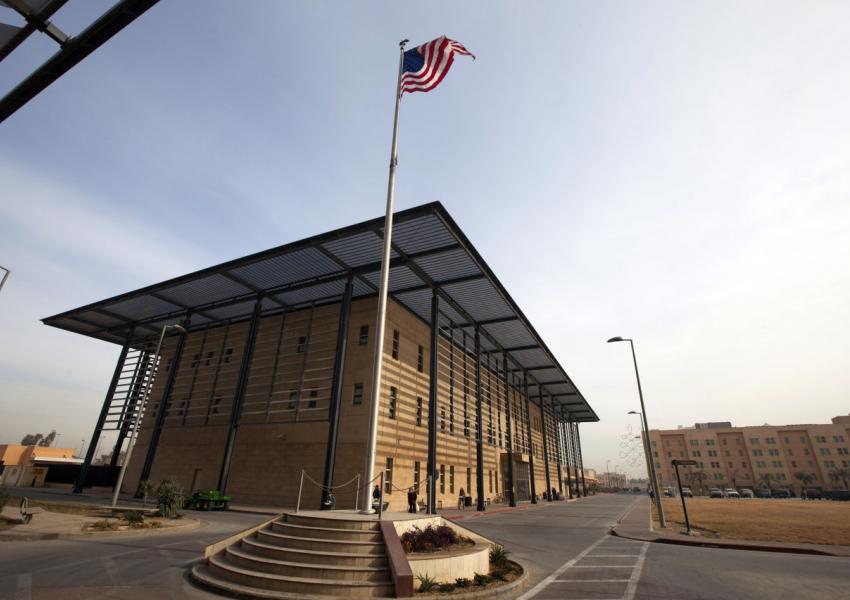
Iran Says Trump Distracts From Domestic Problems By Blaming Iran For Baghdad Attack
Foreign Minister Mohammad Javad Zarif and the Spokesman of the Iranian Foreign Ministry on Thursday vehemently denied Iran’s involvement in a rocket attack on Sunday that hit the United States embassy in Baghdad, alleging that the US and its regional allies were trying to divert attention from domestic problems.
Zarif posted to Twitter images of tweets from Donald Trump in 2012, years before he became US president, accusing Barack Obama of planning to start a war with Iran to get re-elected. Zarif included a chart illustrating the rise of the Covid-19 pandemic in the US, where over 334,000 people have died, and charged that Trump could not divert attention from “catastrophic failures at home” by putting US citizens “at risk abroad.”
On Wednesday Trump pointed a finger at Iran over the rocket attack. “Guess where they were from: IRAN. Now we hear chatter of additional attacks against Americans in Iraq...,” he tweeted. “...Some friendly health advice to Iran: If one American is killed, I will hold Iran responsible. Think it over.”
The 21-rocket attack, one of the biggest in recent years, injured an Iraqi security official and damaged the embassy compound in the Baghdad Green Zone. The US Central Command in a statement on Wednesday said that the attack was “almost certainly conducted by an Iranian-backed rogue militia group.”
“They are rogue because they are actually acting on behalf of Iranian interests and direction in a direct betrayal of Iraqi sovereignty,” the Centcom statement explained. It warned the US would hold Iran accountable for the deaths of any American that “result from the work of these Iranian-backed rogue militia groups.”
Saeed Khatibzadeh, spokesman for the Iranian foreign ministry, called Trump’s allegations “repetitive,” “fake,” and “baseless.” In a statement on Thursday, he said: “As it has been announced time and again, attacking diplomatic and residential areas is unacceptable, and in this particular case, the finger is pointed at the US itself as well as its partners and allies in the region, which seek to escalate tensions and provoke fresh sedition in the region.”
Khatibzadeh suggested US president’s threats had been “aimed at overshadowing the very difficult circumstances in which Trump finds himself,” but left the US “responsible for the consequences and repercussions of any unwise move in the current circumstances.”
Brigadier General Esmail Ghaani, commander of Iran’s extra-territorial Quds Force, arrived in Baghdad Wednesday night for discussions with Iraqi officials. With Trump in his final weeks of office, concerns of escalation have risen since Ghaani was in Iraq earlier in December when he met President Barham Salih and Prime Minister Mustafa Al-Kadhimi.









